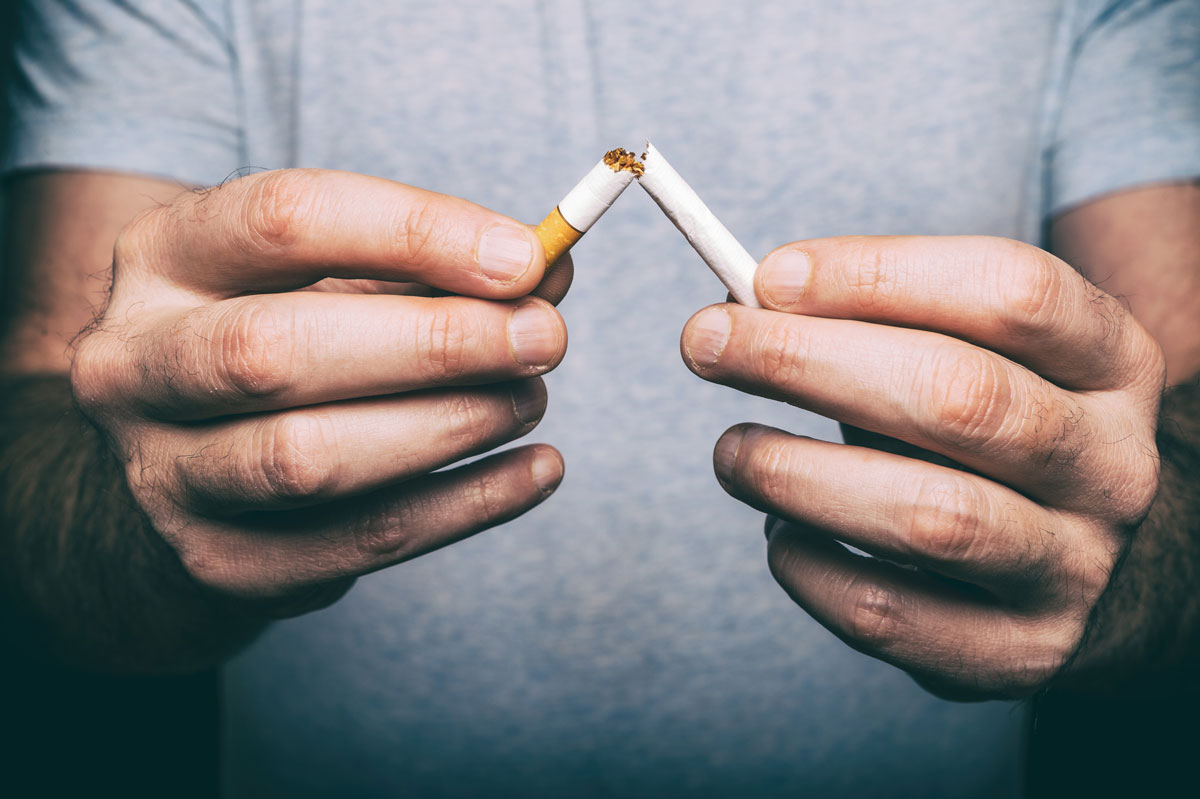- Tybee Acupuncture164 Chief Justice Cushing Highway
Cohasset, MA 02025781-383-8877 - Testimonials
I originally started seeing Tybee back in 2003 for help with symptoms associated with vestibular dysfunction (an inner ear disorder triggered by a virus). My ear problem has improved significantly, and the acupuncture treatments have helped manage my occasional symptoms and flare-ups.
An unexpected side effect was a strengthened immune system. I would typically get a winter bronchial infection every year, always requiring antibiotics. I travel a lot and would very often return from my trips with a cold. But
... Read more »ACUPUNCTURE DAYS ARE THE BEST DAYS!
I always say “acupuncture day” is a vacation from myself. Anxiety is gone, and I feel so calm and relaxed! Finally I can think logically and enjoy my day. It’s seriously amazing, and I hope someday everyone will give it a try!
JM
“Tybee is a consummate professional in her field, constantly seeking education and professional development in her chosen area of expertise.
I attended her clinic for the best part of at least 4 years and never regretted one session, and throughout that period, she consistently improved my health and well being. She recommended lifestyle changes that helped me cope with my job and constant traveling.
I have no hesitation in recommending Tybee for anyone who seeks alternative health
... Read more »I am a patient who had developed some severe lower back pain and now after working with Tybee am virtually pain free.
I work in sales and am on my feet most of the day. I’m also in a band and on weekends; I’m playing 3 or 4 hours at a time standing and holding my instrument while also loading and unloading all the equipment. It would take me weeks to recover from a night of playing and lifting all
... Read more » -
Latest Articles:
- • 10 Family-Friendly Activities Perfect for Spring •
- • 3 Easy Spring Dinner Ideas for a Fresh and Flavorful Season •
- • 5 Tips to Boost Your Spring Wellness Routine •
Health WellNews
Self-Care and Preventative Medicines
Should I get acupuncture even when I’m not sick? This is a question I get often.
For thousands of years practitioners of acupuncture & Traditional Chinese Medicine (or TCM) have emphasized the importance of preventing illness and disease. So the answer is yes, by definition acupuncture and TCM work to keep the body in balance, not only to revive you when you when stricken by illness.

Going to the doctor when healthy is an obscure thought to those in the Western medical system. TCM practitioners look to many aspects of their patient’s lives beyond the physical aches and pains. According to TCM, there are many contributing factors that can bring the body out of balance. These include both internal and external factors such as seasonal changes, diet, physical activity, and emotional wellbeing.
Western allopathic medicine usually doesn’t recognize the role of emotions in creating illness beyond acknowledging stress exacerbates or causes 80 percent of all illnesses. According to TCM theory, specific emotions are linked to specific parts of the body: being stuck on any one emotion can bring that part of the body out of balance. Acupuncture and TCM can help us stay healthy by balancing these tendencies before chronic imbalances set in.
In one of the oldest books on TCM, “The Inner Classics of the Yellow Emperor,” compiled around 100 B.C.E., it’s written that excess joy slows and scatters qi, excess anger causes qi to ascend, excess sadness and grief weakens qi, excess worry knots and binds qi, fear descends qi and fright induces chaotic qi. The good news is each excessive emotions can be ‘harnessed,’ transformed and channeled into a virtuous emotion, which restores harmony and wellbeing. This transformation of emotions from excess to virtue is a vital aspect of the Yang-Sheng or preventative branch of Traditional Chinese Medicine.
Among the most common of excess emotion is the tendency of overthinking, worry and rumination; this will tend to result in digestive issues and/or metabolism concerns, as well as muscular tension and pain. In order to maintain optimal health one must learn to transform overthinking and worry into the virtue of creativity and dynamic insight.
Developing a regular meditation practice, even five to ten minutes once a day, can make a difference! You will develop the discipline to redirect worry and overthinking into resting in the present moment more often. A quote from “The Dhammapada” (The Buddha’s Path of Wisdom) expresses this, “As the bee collects nectar and departs without injuring the flower, or its color or scent, so let a sage dwell in his village.” When you find yourself worrying, compare your thoughts to a bee. Allow yourself to collect the ‘pollen’ of your thought while also germinating future ideas. This will transform your thoughts into nectar. A bee does not cling to only one flower.
Acupuncture can help you let go and move forward.
Try using acupressure at ST-36 and SP-3 to transform worry into creative action.
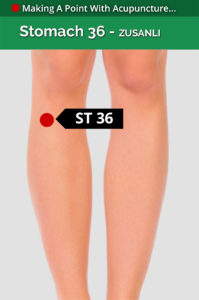 ST-36 is the great harmonizer point: this point does it all! ST-36 can help motivate you, improve your energy, digestion, and boosting your immune system! Locate this point by placing one hand just below the outer knee cap (index finger by the knee cap), use your other hand to find ST-36 (just below your pinky finger) just off the outer shin.
ST-36 is the great harmonizer point: this point does it all! ST-36 can help motivate you, improve your energy, digestion, and boosting your immune system! Locate this point by placing one hand just below the outer knee cap (index finger by the knee cap), use your other hand to find ST-36 (just below your pinky finger) just off the outer shin.
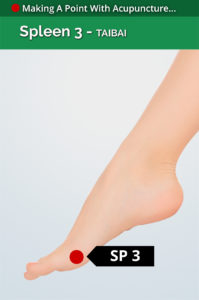 Pair ST-36 with acupressure at SP-3 to clarify your mind and regulate your digestion. Locate SP-3 along the inside of the foot, run your finger along the edge of the big toe until your finger ‘falls’ into a divot, about a three-finger width from the base of the big toe.
Pair ST-36 with acupressure at SP-3 to clarify your mind and regulate your digestion. Locate SP-3 along the inside of the foot, run your finger along the edge of the big toe until your finger ‘falls’ into a divot, about a three-finger width from the base of the big toe.
Look for future articles for tips on transforming other excessive emotions and nourish your vitality and wellbeing with the wisdom of Traditional Chinese Medicine.
Give us a call today to schedule your acupuncture tune-up.
Five Facts You Might Not Know About Acupuncture
Acupuncture is just one facet of a more inclusive medical system known as Traditional Chinese Medicine (TCM). This medical system has been around for about 3,000 years and it has helped thousands of people live long, happy, healthy lives. Acupuncture uses tiny, solid, stainless steel needles that are inserted into the body, which stimulates the nervous and immune systems, bringing balance back to the body.
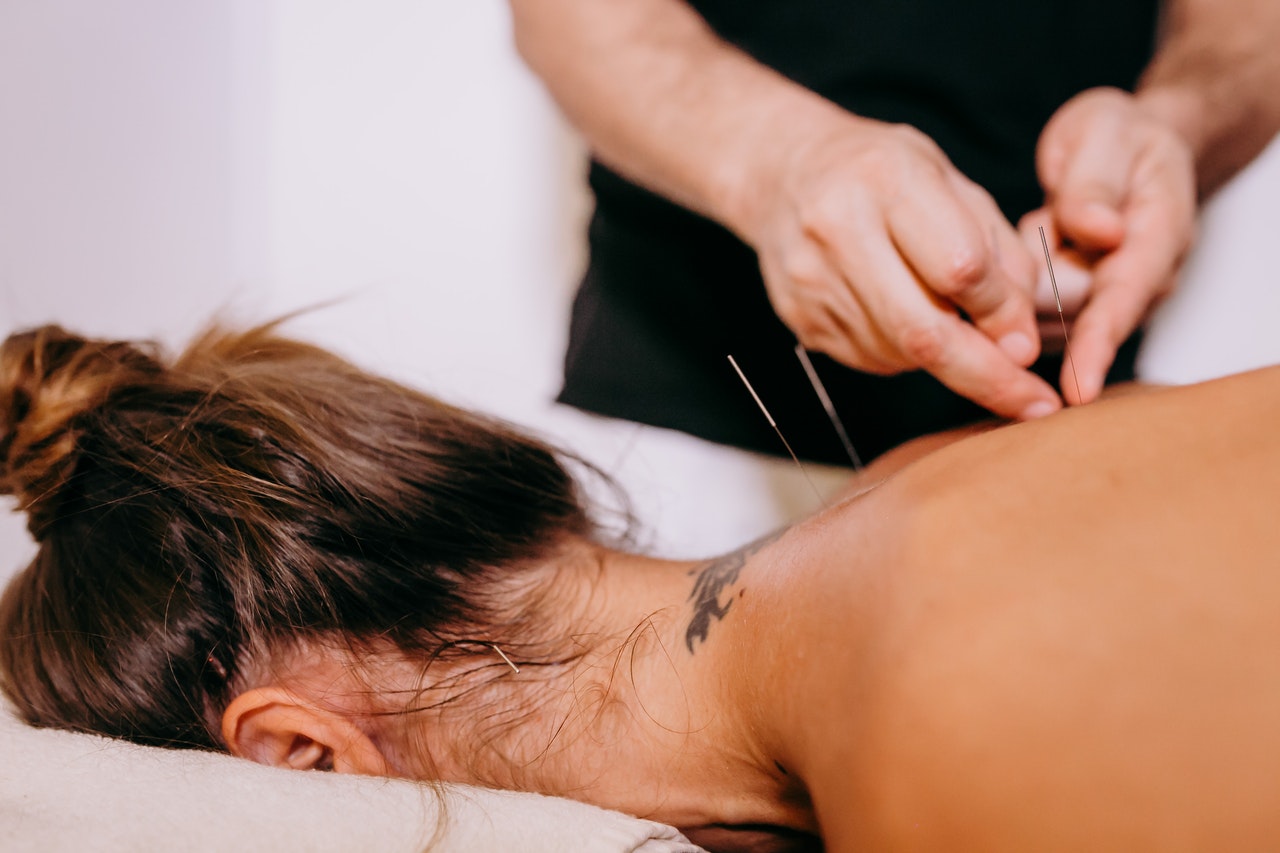
According to the National Commission for Acupuncture and Oriental Medicine, it is estimated that only 10 percent of Americans have tried acupuncture. But according to a survey by the U.S Department of Health and Human Services, those numbers are too high. They estimate only four percent of Americans have actually tried or used acupuncture. For those who have used acupuncture, the rates of success are at 75 percent or better. And many who have received acupuncture are impressed by the amount of attention to detail most acupuncturists give when treating their patients. Acupuncture treats the body holistically, looking at mind, body and emotions in order to give the best treatment possible and cover all bases of the person’s ailment.
Many people are hesitant to try acupuncture, because it can feel foreign and hard to wrap your head around. And with so few people actually using acupuncture, it is no surprise there are a lot of things people don’t know. Here’s a list of five things most people are surprised to find out when it comes to the practice of acupuncture.
Acupuncture does NOT hurt
Licensed acupuncturists hear it all the time, “I don’t like needles.” Well, realistically, who does? But the needles used by acupuncturists are the width of a human hair, very flexible and most people don’t even feel them. In fact, quite a few people who receive acupuncture regularly, actually fall asleep and take a nap once the needles are placed.
Acupuncturists are highly educated
To receive a degree in acupuncture, you are required to attend postgraduate school. This means most acupuncturists already have a bachelor’s degree before they even begin acupuncture school. The acupuncture license is a three to four year master’s degree that includes over 3,200 academic hours. That’s almost as much as most medical doctors.
There are free bonuses to getting acupuncture
Many people seek out acupuncture for a specific ailment. But the glory of this ancient medicine is you will also receive some free bonuses, like improved sleep, better concentration and improved mental attitude. Your whole being gets treated through acupuncture!
Acupuncture helps with almost everything
Most people think of acupuncture for pain relief, but the truth is it can treat so much more. Acupuncture can help with anxiety, depression, addiction, weight issues, insomnia, digestive issues and of course any kind of pain.
Not all acupuncture is the same
There are multiple styles of acupuncture: five element, TCM, Tan, Tung, auricular, abdominal, scalp, Korean, etc. No two are exactly alike, but they all have one common thread, helping people get and stay healthy.
So now that you know a little more about acupuncture, what are you waiting for? There’s no better time than the present to get going when it comes to your health. And there’s nothing stopping you except you.
Family Exercise in the Winter
You’re not imagining it. As the days grow shorter and the air cooler, the kids are getting restless and you may be too. According to the Center for Disease Control (CDC), kids need at least 1 hour of physical activity…every day. Adults should be partaking in either 2.5 hours of exercise at a moderate level OR 1.25 hours of vigorous exercise per week, minimum. Don’t let this cold season give you an excuse to skip the physical exercise and crawl back under your cozy covers. Here are some fun ways to incorporate movement and physical activity through the winter months for the whole family.

INDOOR EXERCISE
-Resistance Training- Bodyweight exercises are a great way to improve balance, flexibility, and strength without any bulky equipment. With a simple Google search, you can EASILY uncover a variety of exercises using the resistance of body weight alone.
-Boxing- Get your heart pumping with a simple boxing routine. Boxing provides a full-body workout, ducking, blocking, and throwing punches. Focus on your footwork for a cardio heavy conditioning workout that’ll get you sweating.
-Play Games- Purchase your family some soft nerf balls and start a game of indoor dodgeball. Try setting up an indoor basketball hoop for fun way to start laundry day. Consider dance parties in the kitchen while putting away dishes. Use commercial breaks to challenge each other to dance contests or during study breaks from online schooling. Try making a hopscotch or obstacle course with painters tape. Get creative and have fun with it!Get creative and have fun with it!
-Family Mindfulness- Competitive activities teach children to master their bodies, and often this can lean hard into focusing on their weaknesses. And while activity and goal setting are imperative to growth, we need to remember to teach our children to be content with themselves in a noncompetitive and appreciative way as well. Activities like Tai Chi, Yoga, or Meditation can help children feel at one with their bodies, teaching them to respect their physical and emotional selves.
SEEK OUT RECREATIONAL FACILITIES
Ready to get out of the house but not into the cold? No worries, we have exercises for you too.
-Swimming- It’s never the wrong time to go swimming. Swimming is a phenomenal physical activity for so many reasons. Firstly, swimming is an age-friendly activity. Being immersed in water provides low-impact therapy for injury rehabilitation or physically limiting conditions. Because swimming involves endurance it is also a great way to keep muscles toned, including those supporting the heart and lungs. Swimming is a full-body workout that is known to improve flexibility, coordination, balance, and posture all the while alleviating stress. Need we say more?
-Rock Climbing- The benefits of climbing are vast as well. Climbing combines mental stimulation and physical power beautifully to burn over 600 calories per hour. Not only does climbing involve the arm muscles used for gripping and pulling, but this sport will also activate legs, back, and shoulder muscles as well. The balance and finesse of this sport work the core to stabilize movements, leading to a stronger and less injury-prone body. Finding an indoor rock wall could be the winter workout you have been looking for.
-Bowling / Trampoline Park- Even with these quarantine guidelines in place and the pandemic following us into the winter, bowling alleys and trampoline parks are beginning to open back up with new safety guidelines in place. On top of the muscle-building motion of the arms and legs with these activities, they also require attention to detail for successful performance. Both of these activities are great for building hand-eye coordination.
OUTDOOR EXERCISE
Moving around outside can get your heart rate up and keep you warm, but if that isn’t enough consider a warm-up exercise routine for inside before you brave the cold. Remember to dress in long layers, wear boots instead of gym shoes, wear a hat, gloves, and don’t forget warm socks.
Try encouraging your kids to get outside. Consider a walk with the dog, visiting a new park, playing basketball, soccer, or even a good old game of frisbee. Skiing, snowboarding, and snowshoeing are great, but obviously only if you have the snow, equipment, and knowledge. Consider seeking out a local ice rink. Ice skating isn’t just for kids. In fact at a moderate pace simply skating laps can burn up to 500 calories per hour while toning your legs, butt, and similar core stabilizing muscles as rock climbing for fine movements and balance. If ice skating sounds too cold for you, consider bundling up and going for a bike ride. Because of its cardio-heavy nature and use of the quadricep muscles biking will warm your body quickly.
Scheduling the proper time for these activities for you and your family is crucial. Often kids have a lot of energy just after they have just finished school for the day, this is an optimal time to introduce rousing new adventures. Also keep in mind that positive reinforcement is the best way to form new healthy habits, both for you and your kids. Keep the dialogue light and encouraging as you discover these exciting wintertime activities together. While picking up new activities can seem like a large undertaking, you are potentially investing in new lifelong passions. And who knows, you might even end up with a workout you’ll want to do all year long.
Start small and remember to reach out to me if you need any advice.
Immune System Health and TCM
Viruses, germs and bacteria are everywhere. They are in the food we eat, the air we breathe, and the water we drink. According to Chinese medicine, they do not cause disease. When a certain organ system is already weak and unable to resist outside invasion, it is therefore prone to attack by germs, such as viruses and bacteria. Illness and disease can only result when our body provides a hospitable environment.
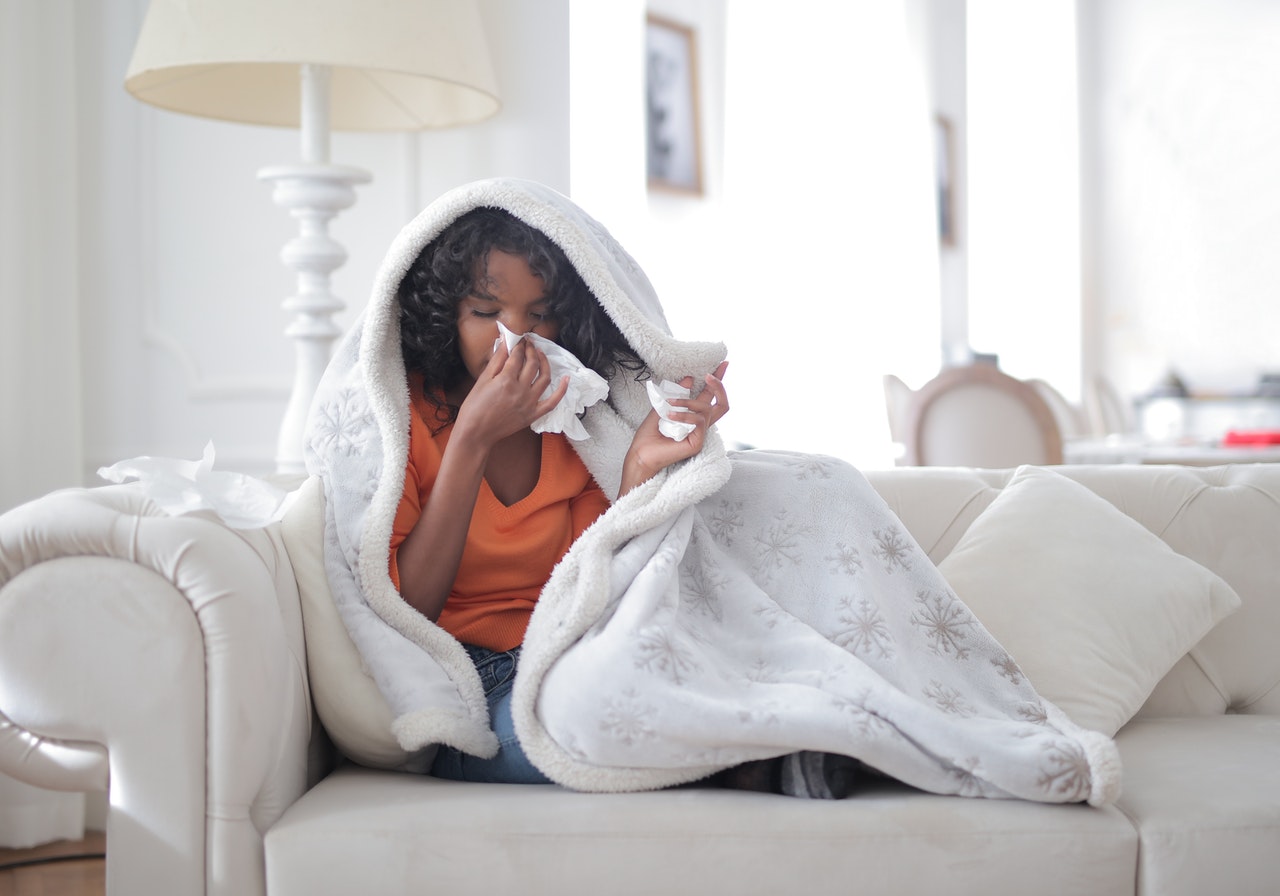
For example, let’s say you inhaled influenza virus. Just because these germs are present, does not mean you will get the flu. There are several factors involved such as the health of your lungs, the vitality of your immune system, and your overall health.
Germs gather and thrive only in weakened parts of the body. When there is an imbalance of Qi, the normal functions of your body will ultimately be affected. This can change the normal immune system response and lead to illness.
A disease requires both a pathogen and a host. These nasty critters can only survive and flourish if circumstances are ripe. When the germs are strong, but the environment of the host (you) is stronger, the disease will be resisted. If the host is weak, however, then your environment can become a hospitable refuge for viruses, germs, bacteria and other microbes to set up shop.
Your Meridian channels control the flow of healing energy throughout your entire body, including your organs. The function (health) of your lungs, and the strength of your immune system all depend upon the quality, quantity and balance of Qi which flows within your meridian channels. The “true cure” of disease is simply NOT to kill germs, but to reestablish and build up the body’s amount of healing Qi. This will ultimately provide the adequate amount of Qi in order to restore the integrity of your meridian and organ system.
KISS SICK GOODBYE
Along with frequent acupuncture treatments, here is another way to boost your immunity in order to stay well through spring.
You can begin by taking astragalus throughout the winter. This is an herb that is revered for its first-class immune support. It is also useful if you feel tired, weak, or apathetic.
Modern research suggests that astragalus is a “biological response modifier,” increasing the function of the adrenal cortex, helping us adapt to stress easier, and increase the production of white blood cells.
If you have been around folks who are sneezing and coughing, try using maitake. This little mushroom can also help to stimulate the immune response. You can use this regularly, after being exposed to some nasty bug.
If you have already caught a cold, you can try echinacea. This herb can help to shorten the duration of a cold. Start using it as soon as you feel under the weather and then stop use as soon as you feel well again.
Herbs are a powerful medicine. It is helpful to consult with an herbalist to make sure you are getting the right type of herbs.
If you or someone you know are looking for immune-supportive remedies, schedule an appointment with me today. Acupuncture and Traditional Chinese Medicine have so much to offer.
Season of the Lungs
The theories of Chinese medicine suggest that each season relates to a different organ system. The Fall is the season of the Lungs. It’s the time of year when people are easily affected by environmental influences. Great changes are taking place in the weather and plant life around us. Some people refer to it as the “flu season.”

The lungs are called the “delicate protective organ,” because they are the only organ that comes into direct contact with the external environment. This can make them vulnerable to the environmental influences which can lead to colds, the flu or allergies.
The lungs are also involved in the production of Wei Qi. Wei Qi is a similar concept to what Western medicine refers to as the immune system. Wei Qi provides the body with an “immune system-like” barrier that protects the body from harmful pathogenic factors that can enter into it, and which may eventually lead to illness and/or disease.
Healthy and strong lungs can enhance the proper functions of the entire body. Through an intricate process, the Lungs extract “pure essence” from the air we breathe and combine it with the food we ingest to produce the Wei Qi. This immunity-like system is then circulated throughout the entire body, providing it with a first line of defense.
When the lungs are functioning correctly, we remain healthy, and potentially free from illness, however, when our lungs become weakened or imbalanced, our body may not have the capacity to produce the correct amount of Wei Qi. When this occurs, the stage for “catching” a cold, the flu or allergies is set. Weak lungs and Wei Qi can also lead to asthma, eczema, dry skin and other problems.
The lungs are negatively affected by many factors: an improper diet, emotional stress, unexpressed or long-held grief or sadness, inherited constitution, smoking, bad air or pollution.
The ancient classic text, Zhen Jing, states, “If the lungs function well, it can activate the flow of Qi, and nourish the whole body with Wei Qi, as rain nourishes young crops.” Proper lung function is necessary to keep us healthy and to help ward off illness and disease.
Staying Healthy and Happy this Autumn
The cooler days and longer nights of autumn have transitioned from the bright, busy days of summer. The natural world is getting ready for the cold months ahead and our bodies are adapting to the changing seasons.
Traditional Chinese Medicine (TCM) tells us that we are all part of the natural world and its rhythms. As the harvest season settles in, you may find yourself looking inward, reflecting on your life and preparing for the winter in your own way.

In TCM, each season corresponds to a specific Organ System. For example, during the autumn, the Lungs are at their most active point and are susceptible to both positive and negative influences. The Lungs, often referred to as “the delicate protective organ” because of their direct contact with the environment, perform the important function of extracting Qi (“vital energy”) from the air we breathe.
Another important function of the Lungs is to produce Wei Qi. Wei Qi is similar to the Western concept of the immune system and protects the body against harmful external factors.
When the Lungs are strong and balanced, we’re generally able to stay healthy and avoid illness. However, if the Lungs are out of balance, we become more likely to suffer from conditions such as colds, flu, asthma, allergies and other respiratory concerns.
SUPPORT YOUR LUNGS THIS SEASON WITH THESE SELF-CARE TIPS:
WARM UP: Protect yourself against the wind and cold. Nourish your body by eating more warm, cooked foods.
COVER UP: Weather can change quickly this time of year. Layering clothing or having an extra sweater will help keep your body warm and at the right temperature in order to stay healthy. Have you ever noticed when you first start to catch a cold, you have a stiff neck followed by aches and pains and even fatigue? The back of your neck is vulnerable to Wind, and when your pores are open up, Wind can get into your body where it doesn’t belong thus causing your body to be more vulnerable to colds! Wearing a scarf can help prevent colds and keep you snug in the winter months.
FOCUS ON EMOTIONS: Try to let go of negative feelings such as grief and sadness. These can strongly affect your body’s overall balance in this season, and those to come.
BREATHE DEEP: Try breathing exercises daily to keep the Lungs healthy. I can recommend and teach you specific exercises and self-care techniques in order to keep you functioning optimally.
SEEK PREVENTIVE CARE: Schedule an appointment with me for a “seasonal tune-up” that is designed to strengthen your Wei Qi and help you maintain balance throughout the seasons to come.
Acupuncture to Stop Smoking
Smoking is a strong and complicated addiction. Quitting smoking is no small task and you will likely need lots of support in order to be successful. You need the best tools to help with the physical and emotional symptoms, and acupuncture is a great resource to help you succeed.
HERE ARE THE 6 THINGS YOU SHOULD KNOW ABOUT USING ACUPUNCTURE TO QUIT SMOKING.
Acupuncture is very effective to help stop smoking.
Acupuncture has been used to help combat addiction and curb cigarette cravings for a long time. Many people have had success and now research is supporting these claims.
In a recent study, “Alternative Smoking Cessation Aids: A Meta-analysis of Randomized Controlled Trials,” researchers gathered data from 14 different studies to see which alternative techniques helped patients stop smoking. The acupuncture studies examined 823 different patients. The researchers concluded that both acupuncture and hypnotherapy may help patients quit smoking. The scientific world is far from definitely recommending acupuncture for smoking cessation, but more and more research shows that it does help many people.
Acupuncture helps with smoking addiction in many ways. It stops jitters, curbs cravings, lessens irritability and restlessness, increases relaxation, and helps detoxify the body. It can also restore balance in your constitution and jumpstart the healing process.
There is a “stop smoking” acupuncture point.
There is a point called “Tim Mee,” which is used specifically to stop smoking. It’s located one finger’s width above your wrist crease, on the inside of your arm. It is used solely to help people stop smoking and it does this by altering the way cigarettes taste.
Will this point be enough? Of course not.
Smoking is a complicated addiction. Tim Mee is a powerful acupuncture point, but it must be used in conjunction with other points to combat cravings, rebalance your body and heal.
Acupuncture can reduce cravings, but it can’t change habits.
Physical cravings are only one aspect of cigarette addiction. Many times, the habit of smoking is harder to stop than the physical addiction. If smoking helps you cope during difficult emotional situations, not smoking can make you feel naked and vulnerable. If smoking is part of a daily ritual, not smoking can make your day feel “off.” All of this is normal and challenging to cope with.
It is recommended that people use all the support systems they have available. Get help from family and friends, join a support group or even exercise. The best way to quit this addiction is to find new, smoke-free activities.
Stopping a smoking addiction requires support—physically, emotionally, and socially.
There are simple acupressure techniques to cope with cravings.
Ear massage is one way you can cope with cravings at home. It releases endorphins and these chemicals are natural painkillers. It also stimulates acupuncture points which help balance Qi.
There are many ear massage techniques. You can place your thumbs in the widest upper part of your ears and massage in circular motions. You can massage the small inner crevices and the front of your ear where it attaches to your head. And you can massage your earlobes, with gentle pulls and circular motions.
Herbs can help with cravings.
There are many herbs that help with cravings, irritability, detoxification, and tissue repair. Make an appointment and we can discuss which ones would be best for you.
The Third Thursday in November is the Great American Smokeout.
The American Cancer Society has designated the third Thursday of November as the Great American Smokeout. This is a day to quit smoking—for good. If you have “thought” about quitting, the Great American Smokeout is a great day to actually do it.
Acupuncture and the Small Intestine
The small intestine is part of the gastrointestinal tract and up to 90 percent of the digestion and absorption of food occurs here. The small intestine’s main function is the absorption of minerals and nutrients from the food we ingest. It consists of three separate parts; the duodenum, the jejunum, and the ileum. The small intestine measures upwards of six to seven meters long and it has a surface area of over 200 meters. In the Traditional Chinese Medicinal system, the small intestine is much more than just its physical traits.
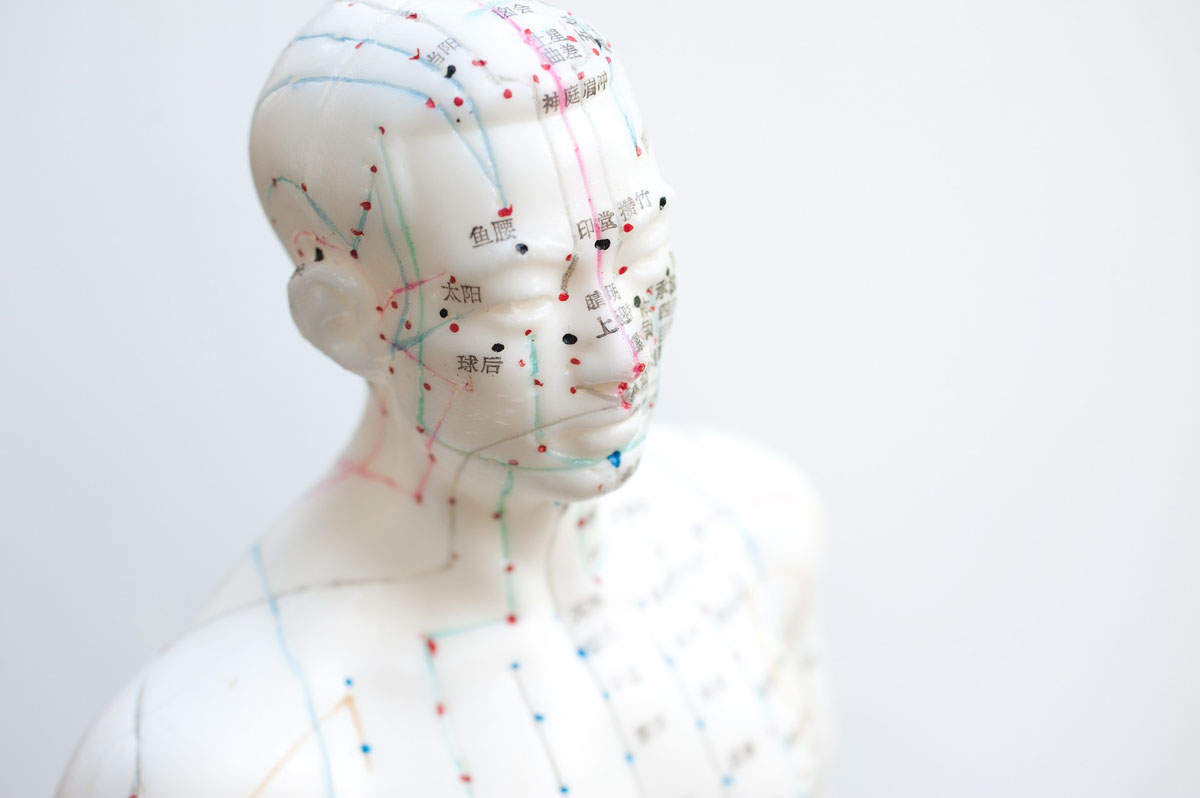
TCM pairs energetic meridians so that they form a complete circuit, to maintain a balance, there is always a yang and a yin meridian, which you may recognize as a black and white circular symbol. The small intestine meridian is paired with the heart meridian. Imbalances in the small intestine meridian can lead to problems such as abdominal pain, digestion issues, and also appetite problems like overeating or poor appetite. The small intestine meridian starts at the outer tip of the pinky finger and runs up the arm, over the scapula of the shoulder, continues up the neck, and ends in front of the ear. The meridian pathway allows for it to be useful in treating not just intestinal and abdominal issues, but also ailments like earaches, TMJ, shoulder, and neck pain.
The small intestine is the controller of the reception, transformation, and separation of solids and fluids. It receives food and fluids from the stomach and then transforms them by separating the pure from the impure. The pure essence is dispersed throughout the body and the impurities are flushed into the large intestine for eventual removal from the body.
The small intestine meridian is particularly sensitive to cold. Therefore eating lots of cold, raw foods can actually lead to problems in the small intestine. When excess cold invades the small intestine, there may be pain around the navel, watery diarrhea or loose stools, frequent clear urination, and loud gurgling sounds in the abdomen.
In TCM, the small intestine plays both a physical and a mental role. The mental role of the small intestine is to separate the clear thoughts from the turbid ones. This is another way the small intestine is connected to the heart in TCM. The heart houses the mind and is in charge of all of our mental health. Clear judgment depends on the ability of the small intestine to separate the pure from the impure. When there is dysfunction in the small intestine, then there may also be dysfunction in the mind.
While the small intestine may not seem as important as the heart or the kidneys, it is still an integral part of our body and as such, it should be taken care of equally as well. If you experience any abdominal or emotional issues, give us a call, and let’s schedule your first appointment! But most of all, take good care of your gastrointestinal health and your body will respond favorably.
TCM for Summer Heat
Traditional Chinese Medicine or TCM, is a medical system that dates back nearly 3,500 years. This system uses modalities like acupuncture and botanical formulas to treat ailments and keep the body balanced. TCM acknowledges not four, but five seasons.
The fifth season that differentiates from the other seasons that many go by is called Indian summer. This 5th season occurs in late August through mid-September. Each season according to TCM has a pair of organs or energetic pathways it corresponds to.
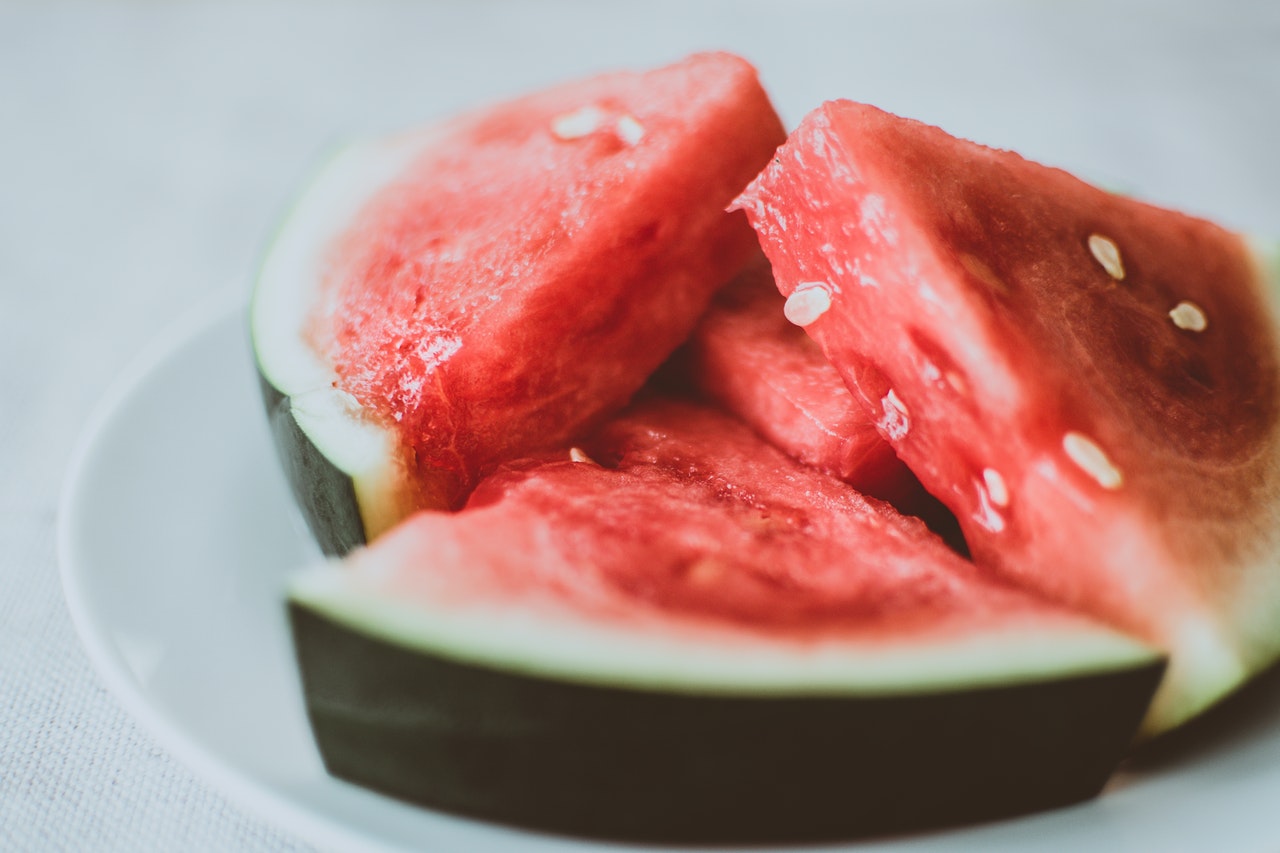
For Indian summer, these organs are the spleen and stomach which are directly responsible for digestion. The spleen also has the added function of transporting and absorbing water in the body. When the spleen is not functioning properly, the body may suffer from a buildup of dampness which can manifest as edema, digestive issues, diabetes, and even brain fog.
Indian summer tends to be the time of year when most people experience health issues such as heatstroke, although it can happen at any time of year. Here are some ways TCM can help you deal with the excessive summer heat.
ACUPUNCTURE FOR SUMMER HEAT:
As mentioned, when summer comes to an end, it tends to heat up before the transition into Fall and this is when many people experience heatstroke. This is where acupuncture comes into play. Along with regulating the body temperature, acupuncture can decrease any inflammation that may have occurred during the heatstroke episode and the acupuncture treatments can help with the digestive issues frequently accompanying heatstroke.
Acupuncture points for summer heat:
Heart 8 – Located on the palm of the hand between the pinky and ring finger. Found by making a fist, Heart 8 can be used to decrease thirst and restlessness, while also treating insomnia.
Large Intestine 11 – This point can be found bilaterally at the outer end of the elbow crease created when the arm is flexed. Large intestine 11 clears heat, drops a fever and decreases any inflammation that may be occurring due to excess heat in the body.
Pericardium 3 – Located bilaterally on the inner elbow next to the large tendon, this point is great for sunstroke or anxiety that often accompanies heatstroke.
CHINESE HERBS AND FORMULAS FOR SUMMER HEAT: Another important component of TCM is the use of herbs and herbal formulas. Many times herbs can be used alone, but there will be a more synergistic effect when single herbs are combined to make a formula. One such herb is the lotus leaf, also known as He Ye. This herb is frequently used to treat diarrhea associated with summer heat. A go-to herbal formula used to clear summer heat is Qing Luo Yin. This formula eliminates the symptoms of heatstroke, such as fever, blurry vision, and brain fog. It’s not a bad idea to keep this formula on hand when spending lots of time outside during the summer.
DIETARY RECOMMENDATIONS FOR SUMMER HEAT: Nutrition can also be very important in preventing summer heat or heatstroke. Certain foods have been used for centuries to fight summer heat. One of these is watermelon. Watermelons are 90 percent water and therefore eating it throughout the warmer summer months can help keep your core body temperature low enough that heatstroke is more preventable. Another cooling food is mint and it can be used in many summer food recipes. It is frequently added to a pitcher of water to create a nice refreshing drink that can be sipped all day long, or added atop a fruit salad consisting of strawberries, blueberries, and watermelon.
In Summer, Nourish Your Heart
Summer is a time of abundant energy, long sunshine-filled days, and warmth. In Traditional Chinese Medicine (TCM), summer has many different associations that help define it and therefore help us understand how to stay in balance with the season. To shed some light on the context of summer, its element is fire, the color is red, its emotion is joy and the governing organs are the heart and the small intestine. One way you can stay healthy this Summer is to adjust your habits in order to support your heart.

The heart is the main organ associated with the season of summer, and as such, it should be paid close attention to and nourished to remain healthy. The heart’s main function is to circulate oxygen-rich blood throughout the body. In TCM, mental activity is also associated with the heart. This mental activity is known as Shen in Chinese medicine. Often compared to our mind, the Shen goes deeper to include our thought processes, memory, consciousness, and emotional well-being.
Summer is the most appropriate time to calm the Shen and provide
it with enrichment that will last throughout the whole year.
When the fire element is balanced, the mind is calm, sleep is sound and the heart organ is strong and healthy. If the fire element is not balanced, there may be depression or an excess of joy which manifests as mania. Symptoms of an unbalanced fire element include heartburn, insomnia, agitation, nervousness, digestive upset, rashes, palpitations, and excessive perspiration.
The small intestine, the second organ associated with summer in TCM, is responsible for separating the pure from the impure, allowing the body to use the pure and dispose of the impure. When the heart is not balanced, the small intestine, the brother to the heart, will not function properly either. For many people, this manifests as digestive upset of some sort: vomiting, nausea, diarrhea, etc.
Going outside and engaging all of your senses is an easy way to nourish the heart. A technique known as “grounding” has been gaining popularity over the past decade, and science is showing that it can be very beneficial. All one has to do is walk or stand in the grass while barefoot. The energy from the earth is incredible, and it can be very healing. While you’re there, take time to listen to the sounds of nature that surround you and enjoy the fragrances of the flowers. Taking in the experience with all your senses can be very grounding and have a calming effect on the mind and body.
Probably the two most important things you can do for heart health during the summer months is drink plenty of fresh water and eat cooling foods. No matter what season of the year, water is vital. It is recommended we drink at least 64 ounces per day. Cooling foods like fruits are good at keeping fire under control, which is healthy for the whole body. Other foods that are beneficial for the summer months include peppers, eggplant, cabbage, kale, broccoli, spinach, melons of all kinds, beets, radishes, jicama, carrots, berries, pineapple, cucumbers, peaches, peppermint, grapefruit, and mushrooms.
